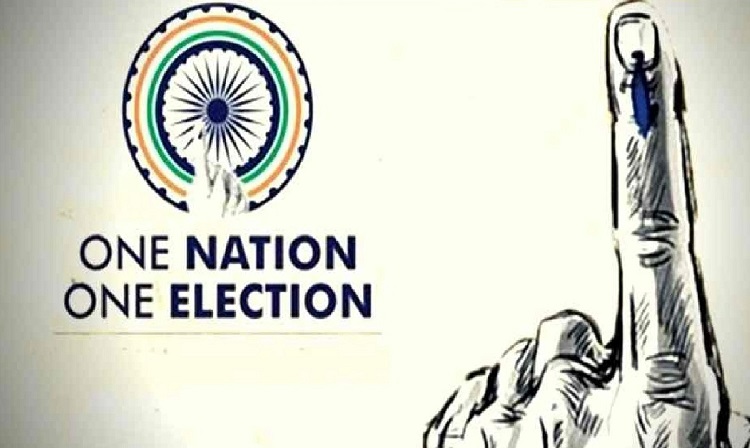 English
English

“Implementation of one nation one election may lead to focussed governance for the people and the political leaders…” Read further on Dynamite News:

New Delhi: As the Union government has constituted a committee headed by former President Ram Nath Kovind to explore the possibility of 'One Nation, One Election', former chief election commissioner OP Rawat weighed in on the matter, saying it was possible and all that is needed is an amendment in the Constitution.
“Framers of the Constitution had kept the provision of One Nation One Election in the law and in the Constitution. In 1952, 1957, 1962, and 1967, both state assembly and nation happened together. Since 1967, it started going out of sync and started the phenomenon round the year election. The election commission had in the year 1982-83 put forward a suggestion to bring an amendment (to the relevant law) so that one nation one election can again be held simultaneously. The suggestion did not fructify then.
“In 2015, the government asked the election commission whether one nation one election was possible, to which it replied ‘Yes it is and we can do it if the constitution is amended’ and amendments are made in Representation of the People Act, 1951.”
Asked what is the difficulty in implementing it, he said, “There is one difficulty in the present situation and that is to make amendments in the constitution and law. It is the government's responsibility to make those amendments through the Parliament and by taking all political parties on board. Without amendments, the election commission is bound by law to hold elections as and when polls are due in the states,” said Rawat.
He was also asked what could be the benefit of implementation of One Nation One Election. He said though there was no empirical study done on the matter, he, however, contended subjective impressions suggest that a round-the-year election process keeps political leaders busy in poll-related matters and in the process, their main role of governance takes a hit.
“Implementation of one nation one election may lead to focussed governance for the people and the political leaders and administration will have more time on their hands.”
Former Law Secretary PK Malhotra also delved on the matter. Malhotra said, "One Nation, One Election is not being raised for the first time. It has been debated earlier also...Our PM has also from time to time said that the time has come when we should re-examine the issue and see that it is one nation, one election in the country...The committee which has been announced by the government under the chairmanship of former President Ram Nath Kovind will deliberate on the issues and come out with a solution..."
Vikas Singh, former additional solicitor general of India and President, Supreme Court Bar Association said “One Nation One Election will reduce costs of holding elections. Overall it is a good move. The committee in itself is not capable of implementing it, constitutional amendment is needed and which can only be done by the Parliament. Ammendments in Article 83 (which delves on Parliament’s tenure), Article 172 (tenure of State assemblies) are required while the anti-defection law has to strengthened.”
The government has decided to call a Special Session of Parliament from September 18-22 where it is speculated that the government could bring a bill for this proposal to take effect.
Simultaneous elections for the state assemblies and the Lok Sabha were held till 1967. However, in 1968 and 1969 some legislative assemblies were dissolved prematurely followed by the dissolution of the Lok Sabha in 1970. This forced a change in electoral schedules for the states and the country. (ANI)